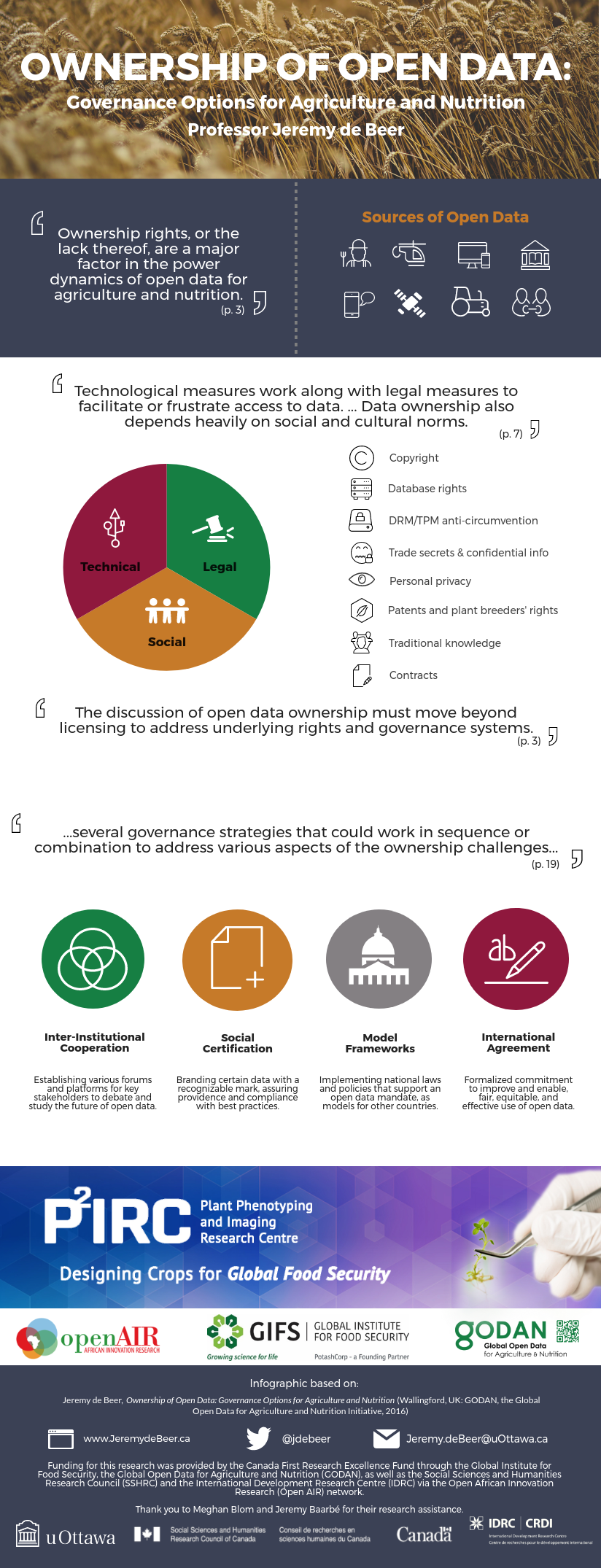Project Goal
To meet the expectations of society in adopting new P2IRC technologies, and to lessen the social, economic, legal and regulatory impacts of adopting these technologies.
Project Summary
Social license is defined as the degree to which a corporation and its activities meet the expectations of local communities, the wider society, and other stakeholder groups (Gunningham, Kagan & Thornton 2004). While not based on legal requirements, social license is at the heart of the acceptance and successful adoption of big data and new technologies. While the suite of technologies and applications embodied by P2IRC are not changing foods in controversial ways, they will pave the way for future technologies and significant changes in how crop breeding is conducted.
Therefore, the P2IRC project must determine the best path to achieve social license for its innovations. Project 4.1 is focused on learning about social license to mitigate the social, economic, legal, and regulatory pushback the new technologies may receive. It is looking at breeding, regulatory, and commercialization pathways for wheat, canola, and lentil crops using traditional decision analysis, investigative assessments, surveys, economic modelling, and behavioural experimentation. The knowledge gained will be used to help researchers understand how they can achieve widespread adoption of new P2IRC technologies the way conventional breeding has been adopted.
Project Results to Date
Project 4.1 has various subprojects:
- Richard Gray, Eric Micheels and their team are focusing on big data and farm-level technologies. This involves determining the market structure of big data and surrounding policies, and surveying farm-level technologies, current and future technology, equipment sellers, and breeders.
-
Stuart Smyth and his team have undertaken extensive research on the regulation of genome editing, examining how various countries will approach the regulation of these new breeding techniques. To date, regulations range from totally unregulated to regulatory gridlock.
- Smyth is presently surveying plant breeders in Canada to gain their insights into Canada’s regulatory framework for plants with novel traits (PNTs). There are some concerns that the existing regulatory framework might not be well suited for regulating genome editing varieties and changes might be required to ensure future innovation investments in Canada.
- Jill Hobbs and Asha Roy are working to develop conceptual frameworks for understanding social license and its dimensions, determinants, and outcomes for new agricultural technologies. These frameworks are then applied to a case study in a developing country context. A series of surveys have been administered to farmers (adopters and non-adopters) and consumers of Bt-Brinjal in Bangladesh to unpack drivers of adoption decisions in the context of social license.
- Lana Awada is working on the topic of crop breeding and big data. She is analyzing how breeders make decisions in whether to adopt automated phenotyping, or continue using conventional phenotyping in the face of evolving technology.
- Kirsten Bett, Carl Gutwin, the Genome Canada AGILE Project (Application of Genomic Innovation in the Lentil Economy), Peter Phillips and Simona Lubieniechi have teamed up with a group of student researchers to assess the adoption and use of a phenotyping application that was developed and distributed to an international team of pulse breeders in 2016.
- Jeremy de Beer is leading a research team focused on data-driven innovation and intellectual property ownership in plant breeding. The goal is to enhance our understanding of ownership of and access to innovation from data-intensive machine learning and plant genetic resources in the global crop system. The project also revolves around “knowledge governance” including:
- Domestic intellectual property law, patent laws, rights legislation, and copyright.
- International treaties and trade agreements, and regulation.
- Strategic management of legal issues; data control and sharing, open source approaches, contracts, licenses, and materials transfer agreements.

Practical Applications
-
A defining success factor for P2IRC will be the actual use of the research and technology it has developed. Project 4.1 assists in making it possible for P2IRC to overcome barriers and identify feasible pathways to use its innovations to redefine crop breeding and agricultural practices. Understanding the importance of social license and its determinants are key to successful acceptance of these technologies by consumers and societies, and adoption by breeders, producers, and farmers around the world.
-
Project 4.1 looks at applying its new technologies to both developed and developing nations, providing innovative resources to transform agriculture and agricultural productivity in order to better feed the world. It also considers how these innovations can be successfully adopted in both developed and developing nations by learning about barriers, cultural differences, decision making, and social license.
-
This project enables other themes to participate in and foster multinational collaboration, which leads to better technologies that are developed more quickly. Its research is focused on the protection and management of data as well as knowledge governance. These elements protect researchers and eliminate potential barriers to collaboration and data sharing.
Collaborations
Project 4.1 works closely with various P2IRC Projects across the other themes including:
- Project 1.2 Crop Phenometrics Platform, Project 2.2 Field-Based High-Throughput Phenotyping Mobile Systems for Crop Monitoring, and Project 3.4 Systems and Collaboration to work together to apply a series of anthropological, sociological, economic, political, and behavioural experimental tools to explore the breeding system and its interaction with the IP system, regulators, farmers, and end consumers.
Research Team
Loading...
Activity Leads:
Richard Gray
Eric Micheels
Jeremy de Beer
Jill Hobbs
Faculty:
Kirsten Bett
Bill Kerr
Peter Slade
Research Associates:
Lana Awada
Diego Macall
MSc. Students:
Lindsay Pollard
Asha Roy
Uchenna Ugwu
JD Candidates:
Peter Zachar
Alyssa Gaffen
Publications
- Inclusive Innovation in Biohacker Spaces: The Role of Systems and Networks
- Digital and Data-Driven Agriculture: Harnessing the Power of Data for Smallholders
- Ownership of Open Data: Governance Options for Agriculture and Nutrition
- The Economic and Environmental Cost of Delayed GM Crop Adoption
- Scientific Underpinnings of Biotechnology Regulatory Frameworks
- Genetically Modified Crops, Regulatory Delays, and International Trade
- Regulatory Barriers to International Scientific Innovation: Approving New Biotechnology in North America


